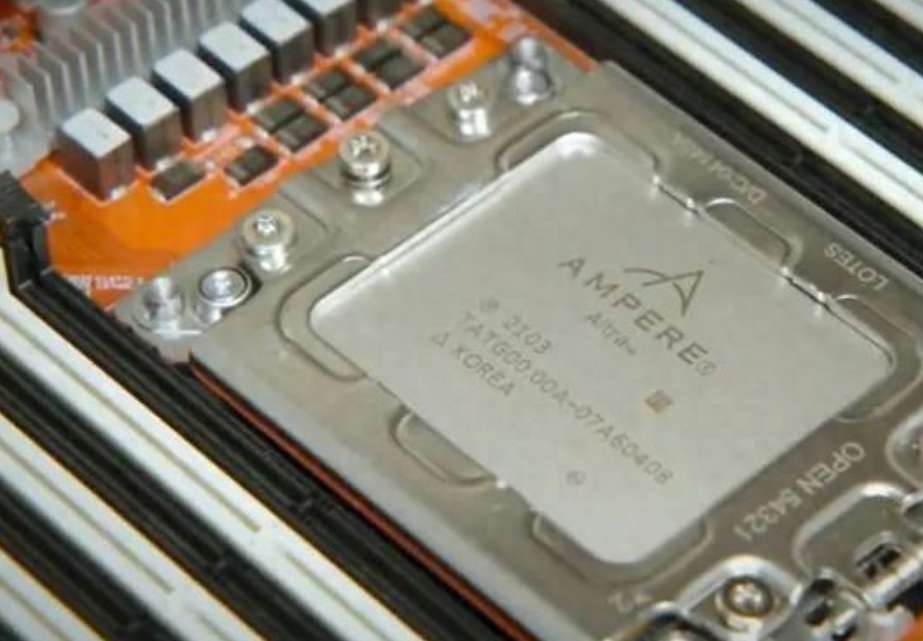Arm Considers Acquiring a CPU Company
Advertisements
The battle for dominance in the realm of CPUs is witnessing fresh developments that could reshape the landscape of computing technology. With major players continually jockeying for position, a potential agreement between SoftBank Group and Arm Holdings with Ampere Computing could signify a pivotal moment in this ongoing saga.
Recently reported on January 10, news organizations have cited insider sources indicating that SoftBank and Arm are exploring collaborative opportunities with Ampere Computing, a notable figure in cloud server CPU technology. This interest from Arm comes amidst Ampere’s strategic exploration for potential acquisition prospects, suggesting a burgeoning relationship that may lead to significant industry shifts.
While discussions are ongoing, the outcome remains uncertain, with the possibility that negotiations could collapse. It's equally plausible that Ampere may attract the attention of other potential acquirers, heightening the stakes in an already competitive market.
Founded in 2018 by Renee James, a former Intel executive, Ampere Computing set up its headquarters in Santa Clara, California, and garnered investment from Oracle, establishing itself as a forward-thinking entity in chip design. The company had previously submitted its listing application for an initial public offering (IPO) in the U.S. back in 2022, achieving a valuation of around $8 billion at that time. The current discussions surrounding an acquisition do not reveal the updated valuation being contemplated by SoftBank, Arm, and Ampere.
Oracle disclosed last year that it holds a 29% stake in Ampere, along with future investment options that could enable it to exert control over the CPU firm. This dimension adds another layer of complexity to the potential acquisition by SoftBank and Arm, indicating that multiple stakeholders are vying for influence in a company that positions itself prominently within the Arm ecosystem.
Ampere’s approach to CPU design diverges significantly from the traditional architectures that have dominated server technology for decades. In a world where existing cloud infrastructures still rely heavily on processor architectures that date back 30 years, Ampere is challenging the status quo. The company introduced the world’s first cloud-native processor architecture from scratch, a move aimed at overcoming the technological bottlenecks that the industry faces.
In 2020, Ampere launched the Altra processor, boasting 80 cores and a revolutionary design that improved both performance and power efficiency. The launch captured widespread attention in the market, underscoring the demand for high-performance solutions tailored for cloud computing. Following this, in 2021, Ampere brought forth the Altra Max, which became the first cloud-native processor with 128 cores, further solidifying the company’s foothold in the sector.

As the years progressed, Ampere demonstrated its relentless drive for innovation by unveiling the AmpereOne processor in 2023, featuring an impressive architecture with up to 192 single-threaded cores. This new iteration addressed the rigorous demands of large data centers, marking a significant advancement in performance and scalability. Furthermore, the company unveiled a detailed product roadmap for 2024, showcasing its commitment to ongoing technological evolution, which reinforces its position as a leader in CPU innovation.
The demand for Ampere's processors is poised to surge, particularly in light of the ever-increasing fervor surrounding artificial intelligence (AI). This rapid technological growth places heightened expectations on data center computational capabilities, aligning perfectly with Ampere's offerings. However, the competitive landscape presents serious challenges, as several tech giants race to develop their own CPU chips, which complicates the market dynamics.
As companies like Intel and AMD grapple with shifts in spending towards NVIDIA GPUs for data centers, Ampere finds itself navigating a precarious path in this rapidly evolving environment. The superiority of GPUs in deep learning and large-scale data processing has begun to influence data centers' hardware purchasing decisions, presenting a significant challenge for companies like Ampere that primarily focus on CPU development.
Ampere has forged a close technological alliance with Arm, utilizing Arm's architecture as the backbone for its data center CPU designs. Meanwhile, Arm is undergoing a transformation of its own, evolving from a traditional semiconductor IP supplier into a more comprehensive chip design enterprise. The potential acquisition of Ampere would not only inject substantial technical expertise into Arm but would also accelerate its growth in chip design capabilities. If successful, this partnership could enhance Arm's competitive position in the Arm architecture CPU market and facilitate the merging of resources and technology to produce even more robust products.
At present, representatives from both Arm and Ampere have refrained from commenting on the potential acquisition, and spokespeople from SoftBank and Oracle have yet to respond to inquiries. Should the sale of Ampere proceed, it would represent a continuation of recent trends in semiconductor acquisitions. Data compiled by Bloomberg indicates a significant surge in global chip-related transactions, which more than doubled last year, exceeding $31 billion. This surge underscores a period of rapid consolidation and transformation within the semiconductor industry, where companies are utilizing mergers and acquisitions to achieve technological synergy, expand market presence, and bolster competitiveness. In this context, the potential collaboration between Arm and Ampere is set to emerge as a significant event that could profoundly impact the future competitive landscape of the CPU market.
Leave Your Comment